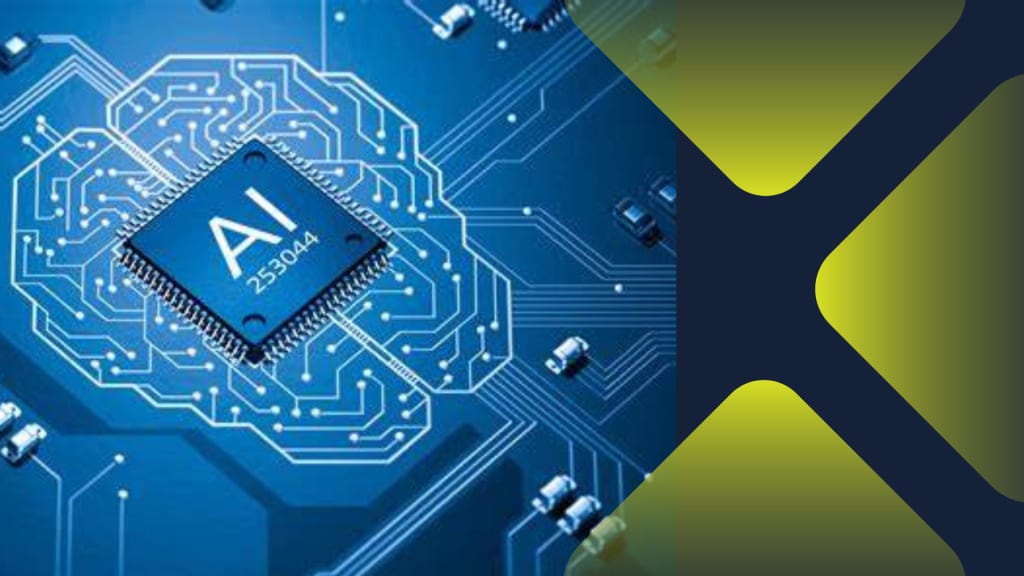Artificial Intelligence - The Future is Here
Exploring the Opportunities and Challenges of a Rapidly Advancing AI Technology

Artificial Intelligence (AI) is an innovative technology that enables machines to perform human-like tasks, including problem-solving, decision-making, and speech recognition. The technology has evolved over the years, and there are different AI technologies available today. In this article, we will explore some of the most popular AI technologies and their applications.
Machine Learning (ML)
Machine Learning is a type of AI that allows machines to learn from data without being explicitly programmed. It involves training a machine to recognize patterns in data and make predictions based on that knowledge. Machine learning algorithms are used in various applications, including natural language processing, image recognition, and fraud detection. Some popular machine learning tools include TensorFlow, PyTorch, and scikit-learn.
Natural Language Processing (NLP)
Natural Language Processing is a type of AI that enables machines to understand and interpret human language. It involves teaching machines to recognize words, phrases, and sentences and make sense of them. NLP is used in various applications, including chatbots, virtual assistants, and speech recognition. Some popular NLP tools include Google Cloud Natural Language API, spaCy, and NLTK.
Computer Vision (CV)
Computer Vision is a type of AI that allows machines to interpret and understand visual information from the world around them. It involves teaching machines to recognize objects, faces, and gestures and analyze visual data. CV is used in various applications, including self-driving cars, facial recognition, and object detection. Some popular CV tools include OpenCV, TensorFlow Object Detection API, and Py Torch.
Deep Learning
Deep Learning is a type of machine learning that involves training a machine to recognize patterns in data through multiple layers of neural networks. Deep learning algorithms are used in various applications, including image recognition, speech recognition, and natural language processing. Some popular deep learning tools include TensorFlow, PyTorch, and Keras.
Robotics
Robotics is a type of AI that involves designing and building robots to perform tasks autonomously. Robotics involves the integration of various AI technologies, including machine learning, computer vision, and natural language processing. Robotics is used in various applications, including manufacturing, healthcare, and agriculture. Some popular robotics tools include ROS, Gazebo, and UR5.
Expert Systems
Expert Systems are a type of AI that allows machines to perform tasks that would typically require human expertise. Expert systems involve programming machines with knowledge and expertise in a particular domain to make decisions and solve problems. Expert systems are used in various applications, including medical diagnosis, financial analysis, and legal advice. Some popular expert systems tools include Drools, CLIPS, and Prolog.
Chatbots
Chatbots are a type of AI that allows machines to interact with humans using natural language. Chatbots involve programming machines to understand and respond to human queries and conversations. Chatbots are used in various applications, including customer service, sales, and marketing. Some popular chatbot tools include Dialogflow, Microsoft Bot Framework, and Rasa.
Autonomous Vehicles
Autonomous Vehicles are a type of AI that allows vehicles to operate without human intervention. Autonomous vehicles involve the integration of various AI technologies, including computer vision and machine learning, to enable vehicles to make decisions and navigate the environment autonomously. Autonomous vehicles are used in various applications, including transportation, logistics, and delivery. Some popular autonomous vehicle tools include Apollo, Auto ware, and Argo AI.
Artificial Intelligence (AI) technologies are rapidly advancing and transforming industries across the globe. The development of AI has enabled machines to perform tasks that were once only possible for humans, creating a significant impact on productivity, efficiency, and decision-making.
One of the primary benefits of AI is the ability to process and analyze large amounts of data quickly and accurately. With the use of AI technologies such as machine learning, computer vision, and natural language processing, businesses can analyze data to gain insights, identify patterns, and make informed decisions.
In the healthcare industry, AI is being used to develop innovative solutions for diagnosis and treatment. AI-powered robots and devices can perform complex surgeries, and machine learning algorithms can analyze medical data to develop personalized treatment plans for patients.
AI technologies are also transforming the transportation industry with the development of autonomous vehicles. Self-driving cars and trucks can navigate roads, make decisions, and avoid obstacles, making transportation safer, more efficient, and more environmentally friendly.
In the financial industry, AI technologies are being used for fraud detection, risk assessment, and investment management. Machine learning algorithms can analyze vast amounts of financial data to identify patterns and make predictions, allowing businesses to make informed decisions and minimize risk.
In the entertainment industry, AI technologies are being used to enhance the user experience by providing personalized recommendations based on user behavior and preferences. AI-powered chatbots are also being used to engage with users, answer queries, and provide customer service.
Despite the benefits of AI technologies, there are also concerns about their potential impact on jobs and society. With machines taking over tasks that were once done by humans, there is a fear of job displacement and a widening of the economic gap. There are also concerns about the potential misuse of AI technologies, including privacy violations, bias, and discrimination.
To address these concerns, it is essential to ensure that AI technologies are developed ethically and responsibly. This includes ensuring that AI is designed to be transparent, accountable, and bias-free. It also involves investing in education and training programs to help individuals adapt to the changing nature of work.
In conclusion, AI technologies have the potential to transform industries and create significant benefits for society. However, it is essential to consider the potential impact of AI on jobs and society and to develop these technologies ethically and responsibly. With proper planning and investment, we can ensure that AI technologies are used to create a better future for all.
In conclusion, AI technologies have revolutionized the way we live and work. These technologies are used in various applications, including healthcare, finance, transportation, and entertainment. As AI technologies continue to evolve, we can expect to see more innovative applications and use cases in the future.
About the Creator
Syed Awais Shah
A skilled article writer with a passion for exploring diverse topics. My writing includes technology, science, health, education, and lifestyle. I aim to provide informative and engaging content that adds value to the lives of my readers.






Comments
There are no comments for this story
Be the first to respond and start the conversation.